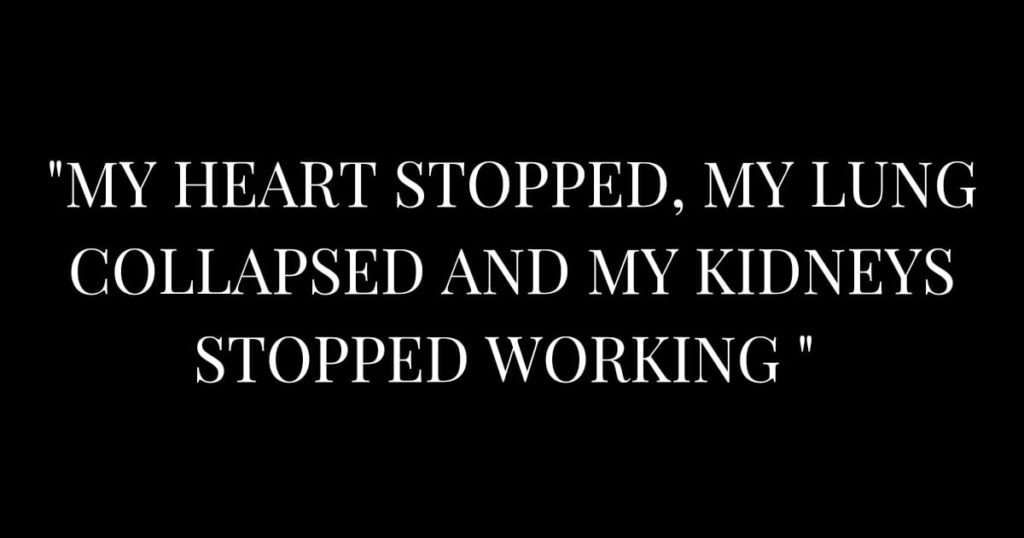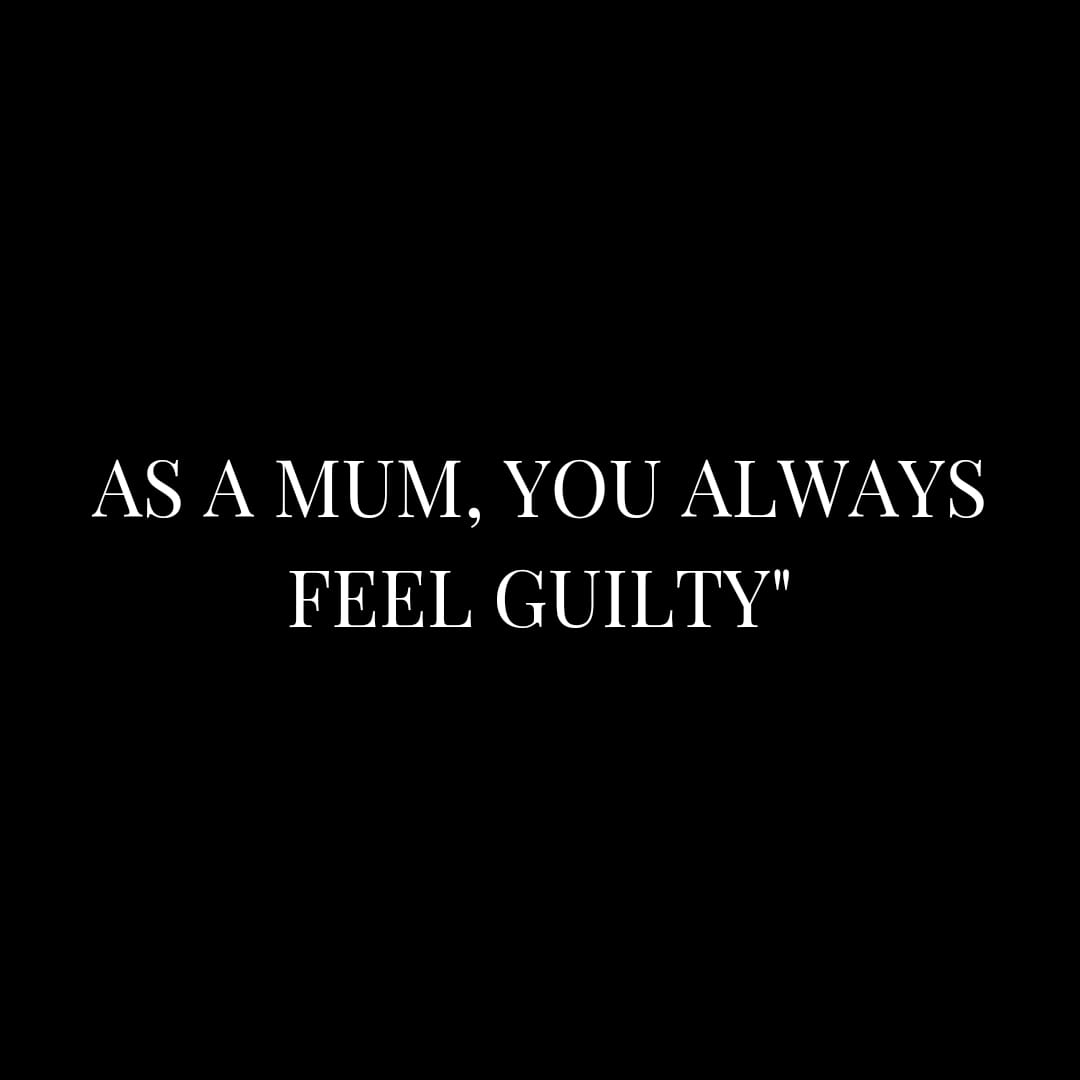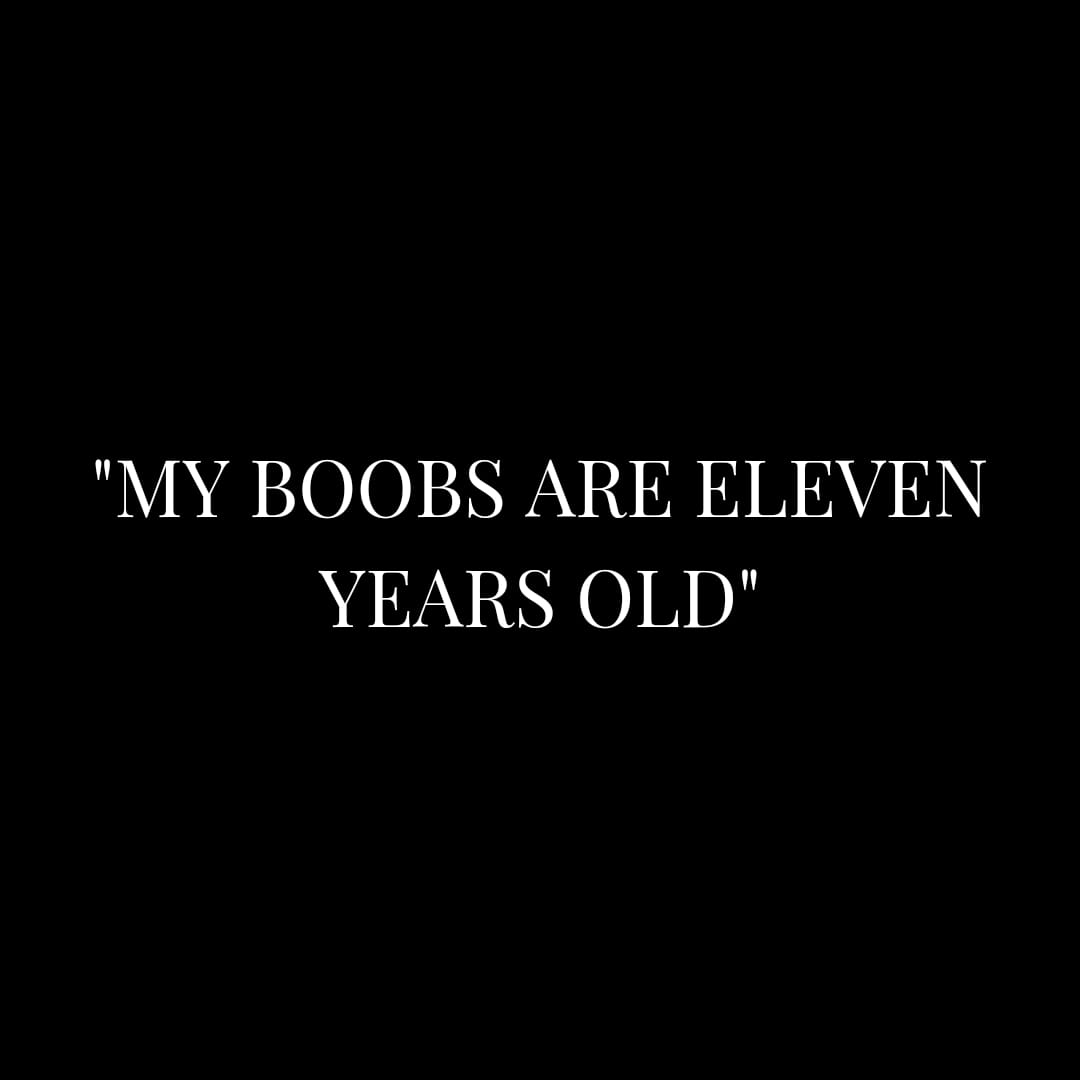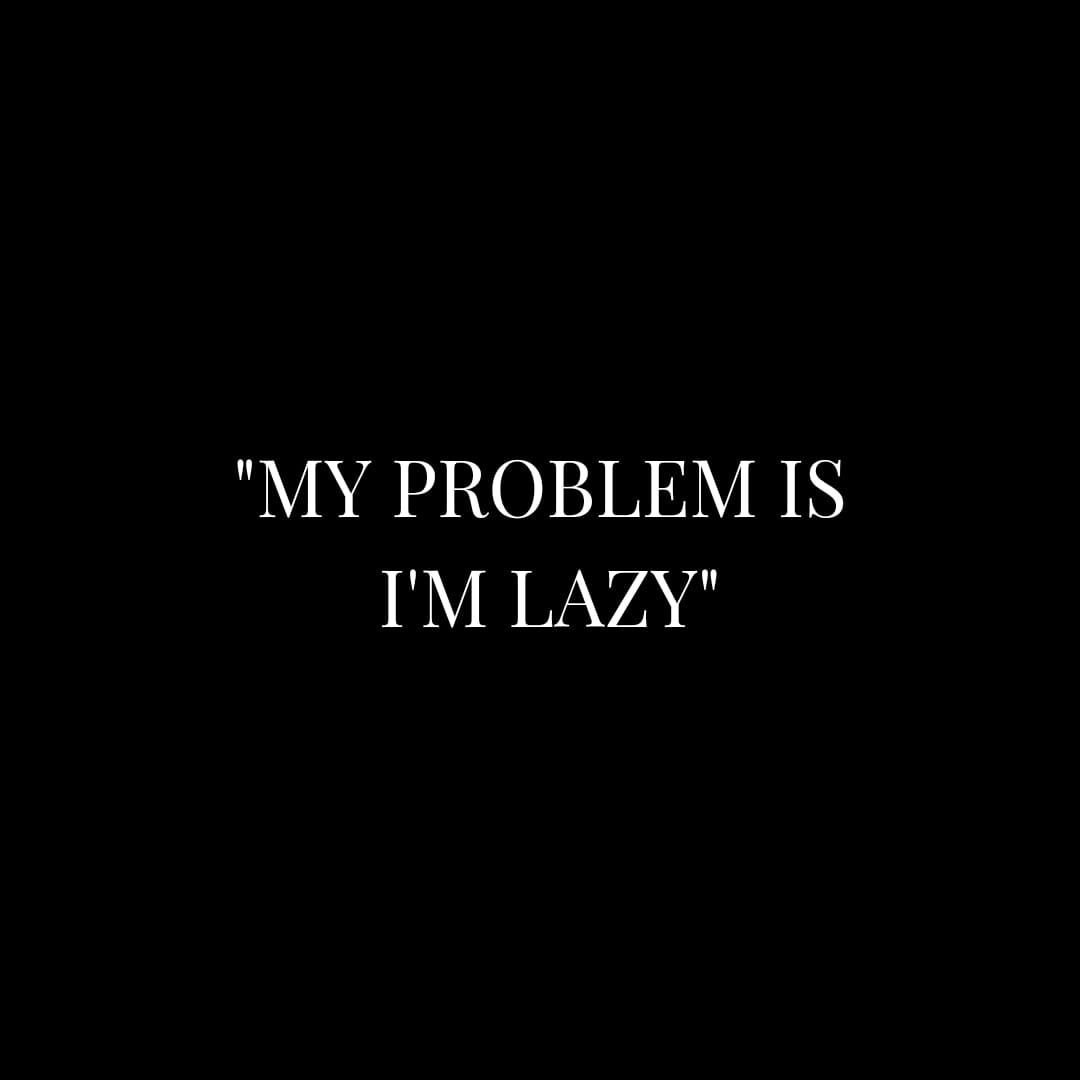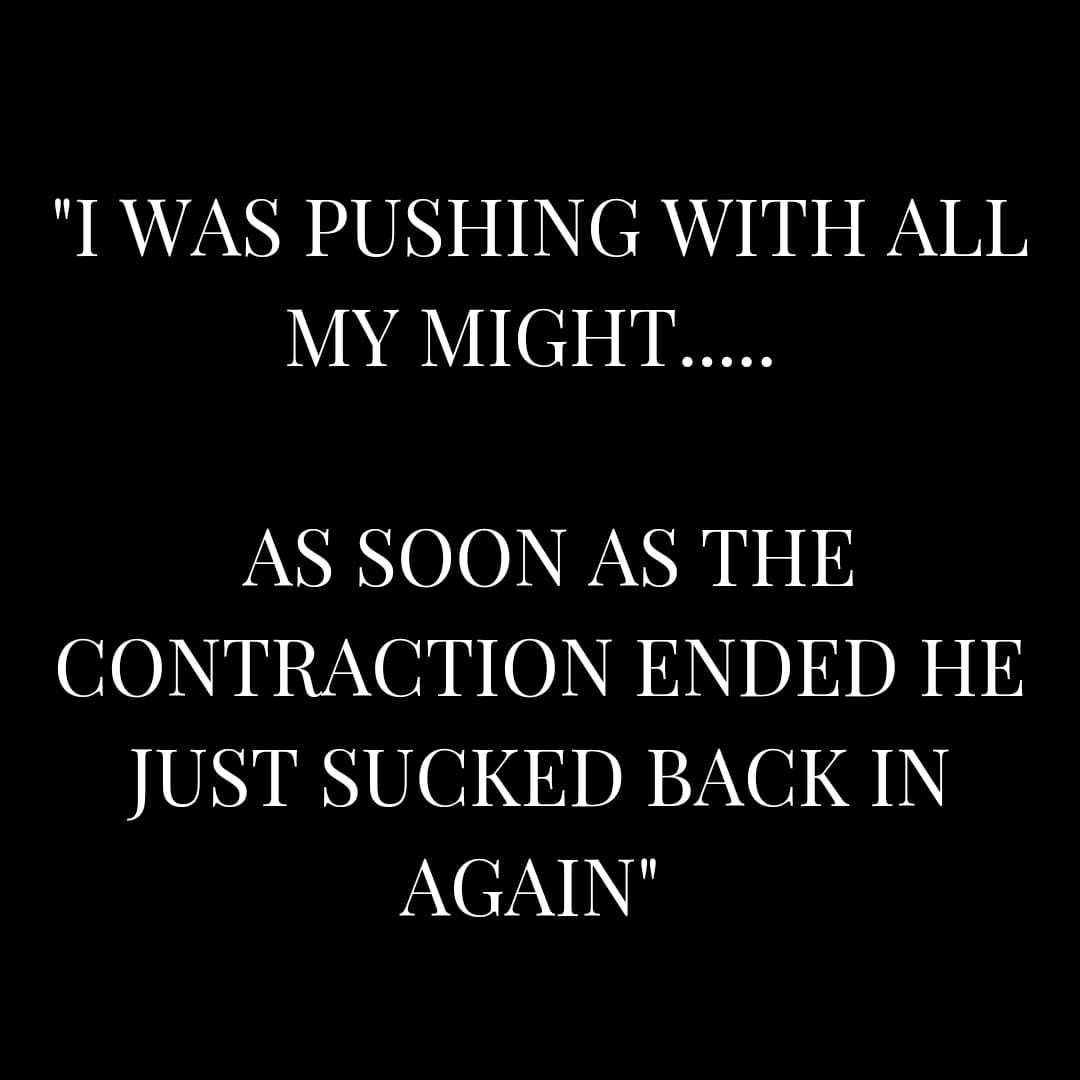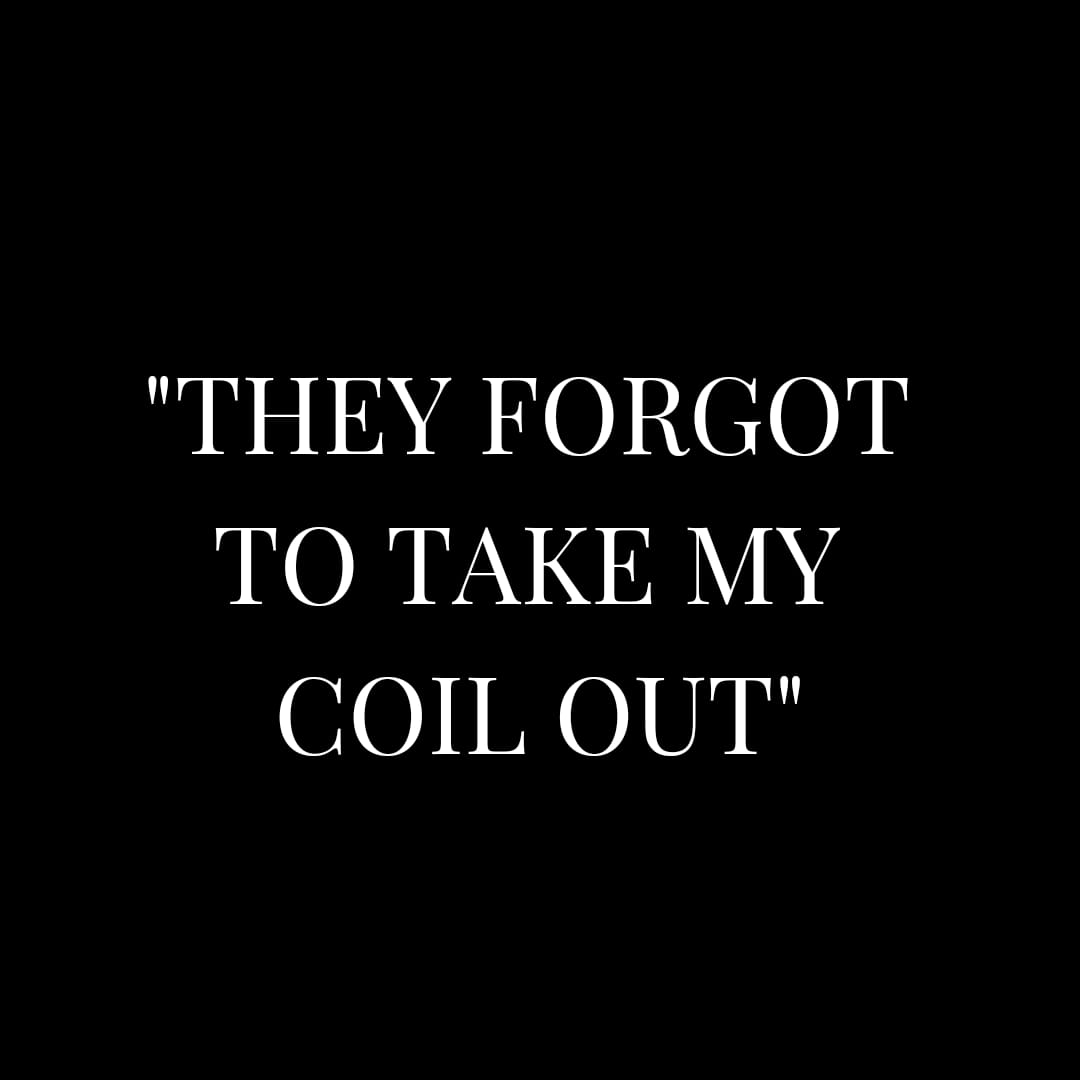- Covid during Pregnancy
“My heart stopped, my lungs collapsed and my kidneys stopped working.”
Welcome back to Season 3 of Fifty Shades of Motherhood! This week Carla talks to the incredible Sameera Kahn. Sameera opens up about her getting Covid whilst pregnant and being induced into a coma to save hers and her babies life.
If you have more questions about Covid-19 and pregnancy check out our Youtube video where we ask Dr Anita Raja about Covid and the vaccine : https://www.youtube.com/watch?v=wPnMoay2bbU&t=13s
Carla: Unfortunately in life, things happen that we have no control over, which is why My Bump 2 Baby works with one financial advisor and one family law, solicitor in each town throughout the UK. If you have not protected your family, in case the worst should happen, please, please think about it. So many families are left homeless when a loved one passes away and the spouse left behind cannot afford the mortgage or the bills.
[00:00:31] We insure our mobile phone, we insure our household appliances, we insure our pets. Why don’t we insure ourselves? Please please today. Go to www.mybump2baby.com/ familyprotectionlegal and find your nearest financial advisor or family protection specialist. It is so important that you are covered should the worst happen.
[00:01:03] Are you looking for groups and classes for your little one. Perhaps you’re looking for pregnancy classes for yourself. My Bump 2 Baby is the UKs leading pregnancy to preschool directory to find your nearest pregnancy to preschool group class, lesson, or service. Head over to www.mybump2baby.com. You can also read our reviews on the latest products, days out and services.
[00:01:48] Hello everybody. And welcome to this week’s episode of 50 shades of motherhood. Today. I am joined by a very brave guest Sameera Kahn. Sameera Kahn got COVID during pregnancy. And what happened to her afterwards is absolutely terrifying. Today Sameera bravely shares her story in the hope that it helps other people understand the effects that COVID can have during pregnancy.
[00:02:40] Hello everybody. And welcome to this week’s episode of 50 shades of motherhood. Today. I am joined by a very, very brave lady, Sameera Khan. Who’s going to be sharing her story about getting COVID during pregnancy. Hi, Samira. How are you?
[00:02:57] Sameera: Hi, I’m fine. Thank you. And yourself.
[00:03:00] Carla: Yes, I’m good. Thank you. It’s so nice to have you on here, speaking to you because I was only speaking to you on Instagram. Wasn’t I? And you shared your story with me. And I was like, I just couldn’t believe what I was reading and I just. I think, you know, your story needs to be heard and, and shared and, and you’ve just been so brave coming on. So thank you so much.
[00:03:20] Sameera: No problem, its my pleasure.
[00:03:22] Carla: Sameera, we’re just going to get a bit of a background about you then. So you and your husband met when you were at school at 11 didn’t you?
[00:03:32] Sameera: Yeah when he was very young.
[00:03:34]Carla: Oh, that’s so lovely. And, and you were really good friends and then you ended up actually getting together in year 11 and that’s it?
[00:03:42] Sameera: Yeah, pretty much. I mean, when we first met, we was, um, both quite shy and you know, when your going into secondary school was quite a big transition anyway. So, um, I remember asking him for a pencil and his response was why on the first day of school, do you not have any stationary? So he still reminds me about that now. Cause I’m always losing my pens, but that’s kind of how it really started.
[00:04:11] Carla: Bless you. Um, so, so you then got married. How old were you when you got married?
[00:04:17] Sameera: Um, oh gosh, I was 19.
[00:04:22] Carla: Wow oh thats lovely. It’s like a fairy tale story. Um, and, and how many children have you got then Sameera?
[00:04:31] Sameera: Um, so I have four children now.
[00:04:33] Carla: Oh, wow. That must be busy.
[00:04:37] Sameera: It very much is.
[00:04:39] Carla: Yeah. Yeah. And did you plan all of your children or did you kind of just go with the flow. See what happens.
[00:04:46] Sameera: Oh I mean. We always talked about children and having a family. We both really wanted like four children, both of us wanted four children. So, um, it was always kind of like a topic that, you know, we wanted to have children quite young so that we could kind of, as they grew up. We would still be quite young and trendy parents as well. So, um, yeah, I mean, we, when we had our first son, um, we kind of, from there decided, you know, we’re definitely going to have more children. Um, it’s just a matter of when really.
[00:05:21] Carla: That’s lovely. Oh, that’s nice. So obviously all your pregnancies before then, were they kind of smooth sailing compared to this last fourth one then I’m guessing.
[00:05:31] Sameera: Yeah. Yeah. I mean, my first pregnancy, um, I was, I was quite young. It was my first pregnancy and it was, you know, everyone’s first pregnancy. They don’t really know what to expect, but now I think about it. Yep. It did go very smoothly. Um, my second and third again, you know, no issues, no problems, um, you know, smooth births. Um, it was just really the last pregnancy that I became very unwell, um, you know, due to pregnancy related issues as well. I mean, I got pre-eclampsia and, um, got gestational diabetes as well. So it, yeah, it was difficult.
[00:06:15] Carla: Had you never had that before Samira ?
[00:06:17] Sameera: No so I had, preeclampsia in a previous pregnancy, but it was controlled and there was no issues. Um, but it was the first time I had got gestational diabetes. So yeah, a little bit worrying.
[00:06:30] Carla: You know when you got pregnant, was this before COVID before this big lockdown or was that ,or was it during? Sorry I say after, we are not out of it yet.
[00:06:40] Sameera: Yeah, no we’re not, I mean it was kind of in between, um, I believe I got pregnant around July, June, or July.
[00:06:51] Carla: And we went into the lockdown in March didn’t we.
[00:06:54] Sameera: Yeah, Um, I mean, well, we had to do something during lockdown.
[00:06:59] Carla: Yeah, exactly. Exactly. TV gets a bit boring, you know? Um, so were you happy when you found out, I mean that you were pregnant because you’d always wanted four?
[00:07:09] Sameera: Yeah, I was, I was really happy. We both was really happy. We were a little worried, just due to the fact that COVID was around. Um, but I had already kind of, when I found out I was pregnant, I’d already decided that, um, I was going to take early maternity leave anyway. Um, and use like the annual leave that I had accumulated.
[00:07:32] Carla: Where do you work?
[00:07:34] Sameera: I work in Virgin Active in Chiswick.
[00:07:38]Carla: Oh, wow. Right.
[00:07:40] Sameera: So, I mean, at that time we was all on furlough anyway. Um, and I kind of was just staying at home and doing the whole at home mum life really.
[00:07:52] Carla: Yeah. Did you enjoy that?
[00:07:54] Sameera: I did. I mean, I work with children anyway. Um, so I love being around children and, you know, that’s kind of like where my forte is. I love being around kids, so yeah, it was enjoyable for me. Really. Yep.
[00:08:08] Carla: So, so you got pregnant and then how, how was the pregnancy initially then? I mean, was your husband able to go to the scans with you or did you have to go to those on your own?
[00:08:18] Sameera: Oh, no, I did actually have to go on my own. Um, yeah, it, it was, it was a really surreal scenario, really just going to kind of find out the gender of your child and check up on the baby and stuff. And your partner not being allowed to go. It was very difficult.
[00:08:37] Carla: Yeah, of course. Because like gender thing, you want it both here it at the same time, don’t you?
[00:08:42] Sameera: Of course yeah.
[00:08:43] Carla: Oh yeah, of course. So, so, um, up to then I suppose up to the 20 weeks, everything was absolutely fine. Or was that when the gestational diabetes had begun.
[00:08:55] Sameera: So they told me quite early that I had gestational diabetes. Um, and I was kind of just monitoring it at home with the blood sugar machine. Um, I mean, I was getting it on track and it was, it was quite good. It’s just in terms of, the pregnancy I, in that pregnancy, I don’t know what it was but I already felt quite unwell. Um, I don’t know whether it was due to having the gestational diabetes and the preeclampsia as well. But yeah, during that pregnancy, it was, it was just very difficult for me.
[00:09:31] Carla: Um, even before everything that you went through. So what, what, what were your symptoms of the gestational diabetes?
[00:09:39] Sameera: Well, I didn’t actually have any symptoms from what I remember. Um, I just went for my normal glucose tolerance test and they just let me know that my blood sugars weren’t quite right and that I had gestational diabetes. Um, I was then kind of booked in with a nurse at the hospital so they could give me like a machine to regulate my blood sugars, check up on them and kind of keep a journal on it. Um, but I mean, by the time that I had got a big enough journal. I was then dealing with symptoms of COVID.
[00:10:16] Carla: Goodness. So, so going to COVID, um, that side of things, I mean, have you any, I mean, not that you would know, but you’re in a down it’s quite hard. Cause you’re limited. You don’t really see everyone. Have you any idea, how you got it or if anyone in your family had it or anything?
[00:10:32] Sameera: So my husband had COVID. Um, but his was not bad at all. Um, he was just a little bit unwell kind of like flu kind of symptoms.
[00:10:46]Carla: So did he have it first?
[00:10:48] Sameera: So he had it first, but what he decided to do during that time was to go and stay elsewhere just because I was pregnant. We wasn’t sure how it would be, um, with me getting. COVID during pregnancy. So we took the decision, um, that he would kind of move out temporarily. Um, so that I would kind of be safeguarded against it and somehow I still ended up with it. So I don’t really know how, I mean, maybe even from packages or from deliveries and things like that. That’s the only thing I can really think of. Cause I stayed home the whole time.
[00:11:29] Carla: Gosh, it’s frightening. And, and how did you feel initially when you first got it or did you just kind of, did you know because of your symptoms?
[00:11:39]Sameera: I mean, I felt really unwell and I just felt like I had a really bad chest infection and it was kind of, I just felt really, really, you know, drained and unwell. At first I kind of thought it may just be due to the pregnancy, um, because I had taken COVID tests and on two occasions it came back negative. This was at the end of December, um, around the 28th or 29th of December, I was doing COVID tests and they came back negative. Um, but then it kind of got worse and normally with a cold and flu. It goes after a week or two and it just, it didn’t go. Um, and it was just, it was on the off chance that I actually went for an appointment in the hospital. Um, that, they did a COVID test there. Cause they said to me, I didn’t look very well and sent me home and did a COVID test. And then two days later I got a message stating that I had COVID um, on the message to say that it was positive. Um, but by this point I was already, really really bad to the point where I couldn’t breathe properly at home. I mean, an ambulance had to be called on one occasion.
[00:12:53] Carla: How far were you into your pregnancy at this point?
[00:12:57] Sameera: At that point I was 27 weeks.
[00:13:00] Carla: Oh, God bless I bet you were so worried.
[00:13:03]Sameera: I was really worried because I know, you know, I know premature babies do really well. Um, but on the off occasion, If it’s too early, can be potentially really dangerous. So I was really stressed out and worried about, you know, how it was going to affect me. But by that time it was so, you know, so bad that I ended up having to go into hospital.
[00:13:28] Carla: Oh, God, I bet that was frightening because I remember even seeing the news with people, poor people with COVID in hospital and it just looked, I mean, I just couldn’t even picture it.
[00:13:39] Sameera: It was absolutely chock-a-block to the point I went into the hospital and they sent me away and said I’d needed to go home and self isolate. So I actually went home and then a week later, I was still really bad. So at that point I couldn’t actually walk or anything because I couldn’t stand up. I had no energy. Um, they actually gave me one of those, um, oximeters for your finger. And my oxygen levels was going down to like 60%.
[00:14:12]Carla: Oh my God. I bet you were so frightened as well.
[00:14:17] Sameera: Yeah it was really bad. I mean I called an ambulance again, but the ambulance, I believe I called them at 11 o’clock at night and I was still waiting the next morning at 9:00 AM for an ambulance.
[00:14:27] Carla: Oh my God.
[00:14:27] Sameera: Because of how bad it was. It was, it was really, really bad.
[00:14:31] Carla: Oh, oh my goodness. I can’t even imagine it. Sorry. I’m just kind of, I think, oh, it’s so frightening that, um, what was your husband with you then at this time or were you still?
[00:14:44] Sameera: So yeah. He had come back because his, um, self isolation was kind of over his symptoms had gone. Um, and he was all well and good. So he came back home. Um, at that point, obviously we was waiting for an ambulance and it just wasn’t coming. So a neighbor of ours actually offered to take me to the hospital, knowing that I had COVID, but you know, they was concerned about me as well. So they took me to the hospital and that’s where it kind of all started because as soon as they saw me, they rushed me in. And at that time in our local A&E, they actually had two sections for COVID patients, because there was such an influx at that time of people with COVID. They had actually turned the whole back part of the A&E into like a COVID only area, um, that we went into. And I remember being wheeled in on the wheelchair and I was absolutely like gobsmacked at the amount of people that I could see, like on respirators. You know, masks and breathing machines. And I was absolutely petrified.
[00:15:54] Carla: Were these people, all different ages as well, or?
[00:15:57] Sameera: Yeah. Yeah. I mean, there was old people that was, there was children. Um, a mix, like a complete mixture.
[00:16:04] Carla: Mm oh, it’s frightening. It’s frightening. And bless you going through all that. So, so where did you go from there then after the A&E?
[00:16:13] Sameera: So they put me into the A&E part of the covid part. And then from there, they transferred me up to a ward for COVID. On the ward, because I remember in the A&E department, they was giving me different breathing machines and they just wasn’t helping improve my oxygen. Um, they tried about four or five different machines and it just, it was just not increasing and not helping. So they sent me up to a ward that was specially designed for COVID. Um, and I remember one of the doctors come and spoke to me and they were saying your oxygen isn’t increasing even with full power machines. So the only option we have. To help, you know, give your body a bit of a break and to, you know, save your pregnancy is to put you into an induced coma. Uh, at that point I, you know, I was so unwell, in terms of my breathing that I agree, I would have agreed to anything at that point because it’s awful when you can’t breathe and you know, you’re worried and none of the machines are working. It’s a really scary time to be in.
[00:17:32] Carla: Oh, I can’t even imagine that, that, that is frightening because even the thought of, I mean, I, if someone said that to me you’d just be worried that you’d never wake up again, wouldn’t you.
[00:17:42] Sameera: I did, I started messaging everybody with, you know, these like really emotional soppy messages. You know, if I don’t wake up, look after my children, and then I’ve got kind of an influx of phone calls, um, saying what’s going on. And then I just kind of explained to my family that there was going to put me into a coma to help me breathe and to kind of relieve my lungs. Um, and that’s kind of where it started from. They, after my, I made my phone calls. They took me up to the ICU ward and then that’s where it started. They put me into the coma. And, everything from there on was a blur.
[00:18:22] Carla: Did you speak to your husband and your children before this happened?
[00:18:25]Sameera: So yeah, I did. I called them. I explained to my husband what was happening and, you know, I kind of just explained to the kids that mummy’s in hospital at the moment. I’m not feeling very well. Um, but we kind of took the decision not to tell them exactly, what was happening because we didn’t want to worry them. I mean, my children are still quite young. My eldest is eight. Um, uh, my youngest, um, before I had my new baby was only three at the time. So very young, they don’t really understand at, that age as well.
[00:19:03] Carla: Oh God, I bet your husband was beside himself.
[00:19:06] Sameera: Yeah, he was, he was really worried. I mean, he came from like a medical background, so he kind of knew that that was going to possibly be an option. Um, just kind of relieve my lungs. Um, but yeah, from what happened after they put me into the coma, we, nobody expected to have what happened after to happen. And we didn’t think it was going to be such a long time.
[00:19:32] Carla: So tell us what happened then once you were in the coma then.
[00:19:37] Sameera: So once they put me into the coma, um, at first I was stable and I was okay. And then a day went past and my body kind of started to shut down. My heart stopped. My lung collapsed and my kidneys stopped working. And at that point, They were trying their best to kind of get everything sorted out and done. They put a stent into my lungs and, you know, put me on dialysis to try and fix my kidneys, but it just, nothing was working. So they actually then called my husband. And at that time there was no visiting in hospitals, um, due to COVID and they said to my husband, you need to come in. My husband was just, I think at that time he knew that it was bad news because he, he, I remember him telling me that he couldn’t think straight and all he could think about was why are they letting me come in to visit my wife?
[00:20:38] Um, so then the doctor kind of explained to him, you know, your wife is actually, in a really bad situation, you know, her organs shutting down and based on what we’re seeing right now, there’s like a 10% chance that your wife’s probably not going to like wake up.
[00:20:56] Carla: Oh God.
[00:20:58] Sameera: And at that point, obviously. That’s the last thing you really want to hear. Um, then they had like a discussion about, you know, what was going to happen with the baby. And they actually took this decision to take baby out early. Um, and at that moment, just to try and save the pregnancy because my body was fully shutting down and the next thing would be the pregnancy would then obviously be. You know, possibly terminated at that point. If my body is shutting down.
[00:21:27]Carla: Of course. Did your husband have to agree to that or?
[00:21:30] Sameera: So yeah, he did. He went to the hospital to agree to that, you know, them taking baby out early to at least give baby a chance. And yeah, they took baby out. They were planning to actually do it the next day. But when my husband actually came to the hospital, um, I started, you know, not responding and I was dramatically getting worse. So they actually in the middle of the ICU did an emergency C-section they didn’t even take me to theatre.
[00:22:02]Carla: Oh my goodness. Oh gosh, you must have been like. In a terrible, terrible way.
[00:22:09] Sameera: Yeah it was, it was, it was really bad.
[00:22:12] Carla: Um, gosh, gosh. Right.
[00:22:16] Sameera: What their main worry was that if they took me off the machine, like I wouldn’t make it to theatre. If they took me off the machine on the ICU by the time I’d got to the theater, I would have already been gone.
[00:22:29] Carla: Oh god, that makes me so sad. Oh you’re so brave sharing this story .
[00:22:34] Sameera: I think its really important because people, you know, I saw a lot when I woke up on the ICU and a lot of pregnant people were in the same situation and unfortunately didn’t make it so. It’s really, it’s important for me to share this with others. So other people can really see that this is serious. It’s not just something we can throw around. Like it’s not, no, it’s a serious, you know?
[00:23:05] Carla: Oh, it is. And you’re so brave for sharing this but, so, so go, going back to your baby, then you baby them was born at how many weeks?
[00:23:13] Sameera: She was 29 weeks when she was born.
[00:23:16] Carla: 29 weeks goodness. And, and, and what happened with you then after the birth? Did they, I’m guessing they managed to kind of stitch you up and you think your body that’s even more for your body to take on isn’t it?
[00:23:27] Sameera: Yeah, definitely.
[00:23:29]Carla: Major surgery.
[00:23:30] Sameera: Yeah, definitely. And I mean, from what I was told, they, once baby was taken out, I kind of, they kind of resuscitated me and things like that. And I slowly started to respond and was at one point they called my husband and said, you know, your wife is stable. And that was kind of good news at that point, because at that moment, my husband all he had been told was that there was a 10% chance of me waking up and to be told that I was stable, it was really, you know, a relief for him. Um, I mean he got numerous phone calls because I would be stable one moment. And then out of nowhere I would just completely deteriorate and they just really couldn’t understand what was going on. That why one moment I was fine and then out of nowhere I would completely deteriorate. And you know, the dialysis machine that I was on would continuously clot and things like that. So that’s, that’s also another issue that was happening at the time.
[00:24:36] Carla: It was like, everything was against you really, you know?
[00:24:41] Sameera: Yeah.
[00:24:42] Carla: Gosh, gosh. Um, so, so your little one, then I’m guessing, um, they went into the ne neonatal unit. Did they?
[00:24:51] Sameera: Yeah. She, um, at first she was on a breathing machine, um, and they, they did state that, you know, um, she would probably be on it for a couple of weeks, but she’s definitely a fighter. She was taken off of it after four days and was breathing on her own completely fine.
[00:25:10] Carla: Did she get checked for COVID?
[00:25:11] Sameera: They did do tests, and thankfully it didn’t pass on to her.
[00:25:15] Carla: Wow.
[00:25:16] Sameera: Thankfully.
[00:25:18] Carla: Yeah.
[00:25:19] Sameera: Crazy, because you’d automatically think that it would.
[00:25:22] Carla: Yeah.
[00:25:25] Sameera: Yeah. We were really happy about that.
[00:25:28] Carla: Oh goodness. So, so how long did you stay in this coma for then?
[00:25:33] Sameera: So I was in the coma for two months.
[00:25:38] Carla: Woah.
[00:25:39] Sameera: Two months.
[00:25:39]Carla: Months. Oh my goodness. I bet. I mean, oh, do you remember anything from being in the coma? Like, do you, what did it feel like? Did it just feel like you were put to sleep and then you woke up or?
[00:25:52] Sameera: Yeah, I mean, I actually don’t remember anything from being put to sleep. I mean, the last thing I remember really was them saying, them injecting me through a cannula, with some sort of drugs to kind of ease me off to sleep and then placed the mask on me and me going to sleep. That’s all I really remember. And then the memory from after that, the only memory I have from after that is when I woke up and, I was really confused. And I was just kind of wondering where the baby was, because that’s the first thing I remember remembering that the baby’s not, not in there. I can’t feel the baby.
[00:26:32] Carla: Oh gosh yeah.
[00:26:33]Sameera: I was really worried at that time, because when I woke up, I was fully paralysed. I couldn’t speak, I couldn’t lift my arms. I couldn’t move at all. And I was just in this bed looking. And I was just really worried. The only thing I do remember is when I did wake up is the machine alarms going off and then, them rushing over to me and it must’ve been, my heart rate going through the roof or something. Um, but yeah, they rushed over to me and kind of said, it’s okay. And they kind of explained to me what had happened. They explained to me that baby was okay. Baby was taken out by emergency C-section and she was doing really well on the NICU, the neonatal unit. Um, and they, they just said to me, you know, you’ve been asleep for a very long time. And they explained to me I’ve been in a coma for two months and I just remember thinking, wait, so I have a two month old baby and it just felt like, it just felt like, you know, going to sleep one night and waking up.
[00:27:40] Carla: Oh my goodness me. That is, two months, that’s so long.
[00:27:46] Sameera: Yeah.
[00:27:47] Carla: Oh gosh, bless you. And, and then after that, I mean, would your recovery. How, how was your recovery after that? How long did you have to stay in hospital then?
[00:27:58] Sameera: I was in hospital until, oh gosh, let me think back March. Um, the end of March. Um, but then I basically, because I wasn’t allowed to go home because I still couldn’t move any of my limbs. They actually sent me to a dropdown unit, which is like a residential kind of like a, it’s kind of like a care home. Um, but for physio therapy and while I was, I was there a week and then. Something else happened. I actually had a mini stroke from COVID. Um, you know, my physiotherapist came into the room and I remember feeling really, really unwell. And I said to her, I’m not feeling quite right. And then that’s all I remember the next thing I woke up in hospital again, and I was told that I had had a fit. And they’d sent me for a scan and I’d had a mini stroke, which was related to having COVID.
[00:29:07] Carla: Oh, I feel so sorry for you. Everything you’ve been through, it’s just been awful.
[00:29:12] Sameera: Yeah. It’s been, it’s been an eventful year.
[00:29:15] Carla: I bet part of you though is so thankful that you little ones okay. And that you’re okay. But at the same time, it’s so unfair because like this shouldn’t have happened. So, so unfair that you had to go through all that.
[00:29:29] Sameera: Yeah, it’s, it’s definitely been a difficult year for our family. Um, I mean, we’re, we’re getting better now. Um, things are improving, you know, we’ve recently moved house because where we was living previously, um, it was on the 23rd floor of a tower block. Um, and it was a Maisonette, so it had like a lot of internal stairs, so I wasn’t able to even move around the property. So I was actually stuck in my living room kind of as my bedroom. And yeah, it’s just, its not an ideal way to live, but we have recently moved house. We’re now in, you know, a wheelchair accessible property. Um, you know, I’m, I’m doing really well. It’s a lot better for my children. It’s a lot better for me. And I’m able to do, you know, the little things that I wasn’t able to do before, like put my children to bed and these are the things that you take for granted really when you’re able to do them.
[00:30:29] Carla: Do you know? Yeah. That that’s it exactly like sometimes if George says, oh, mummy I’m all right for a story or something, I’m like, yes. And I think I got out of it, but like, you know, being in your situation and everything, you’d give anything to read that story to your little, little one at night. And so something I wanted to ask is, is it, what was it like meeting your little one for the first time?
[00:30:52] Sameera: So it was really overwhelming. Um, I mean the first time I actually met her was when she was nearly three months old. Um, because they wouldn’t let me see her. She was in hospital, um, in the neonatal unit, but I was in the COVID ICU still, even though I had been cleared of COVID. And I was allowed to leave the ward, um, in my bed, they still wouldn’t allow me to go down to the neonatal unit, which, you know, at the time I was really upset, emotional. I just had a baby and I kind of was like, it’s not fair, but now, now I think about it. They, they made the right decision because at, you know, young, small babies like that, if they caught COVID to the extent that I did, it could be a completely different situation.
[00:31:42] Carla: Mm, gosh, that must’ve been so hard.
[00:31:45] Sameera: It was, it was really difficult, but I mean, when I first met her, it was just surreal. I just, it was really strange cause I haven’t had a C-section before either, I had three natural births. So to have a C-section it’s kind of, I felt like. Is this actually my baby. And I mean, at first it was really difficult because I’d been asleep for so long and in a normal situation, even if it was an emergency C-section, you would kind of know that you was in labor and the lead up to that. But I kind of just went into a coma and woke up, with another baby, which if it was really surreal to be honest.
[00:32:26] Carla: Yeah. I mean, gosh, my situation is nothing compared to yours, but I mean, my son, he was born early and um, gosh, you know, I, it was only a day or two before I saw him, but I remember looking in and thinking, is he even mine? You know, you just it’s that bond, isn’t it? Because you initially have the bond with your babies when they’re born straight away. But when they’re kind of taken away. It’s all that’s taken away from you as well. Isn’t it? It’s not just your babies there. That’s, that’s so hard. So, and also you also children not seeing you for two months?
[00:33:01] Sameera: Yeah. Well, by the time that I saw my children, it was close to nearly four months.
[00:33:06] Carla: Oh.
[00:33:06]Sameera: Yeah, that was, it was so difficult for me. At first obviously when I’d woken up from the coma, I was still on quite heavy drugs and I was sedated quite a lot, but once that all started to wear off and I become a lot more aware of things, it really did start to get to me. And you know, you can face time and you can make phone calls, but it’s not quite the same.
[00:33:31] Carla: No, you just want to be with your family don’t you? You just want to be at home. Oh. So, so now currently your current, situation then you’re currently in a wheelchair. Um, and I know we touched on that a little bit before, but how are you finding that? The change and everything is it really hard?
[00:33:50] Sameera: You know what. A lot of people have said to me, I don’t know how you do it. And I don’t know how, you know, you’ve come out of this the way you have but I alway try to look at the positives in life. Like to the point where a lot of people didn’t make it in hospital and I, you know, pulled through, I can still see my children every day and some people can’t. So, you know, I can’t complain about how I am now. I mean, it’s difficult. It really is, you know. Being able to fully walk before and being completely independent. To the point when now I have carers and my husband cares for me and has to do a lot of things for me, it’s very difficult for me, but I mean, I am getting there. I mean, I’ve recently just joined the gym.
[00:34:37] Carla: Oh, wow.
[00:34:38] Sameera: Yeah. I’ve recently just joined the gym. I’ve been a few times its completely, it it’s so strange being in the gym and you know, you get a lot of looks and people look like, oh, how are you going to get onto the machines and things like this. But, you know, I push myself every day really to try and break, you know, those, those, when people look and they, they don’t really know how to approach things, I try and break that, you know, That stereotype really, and just kind of get on with it.
[00:35:14] Carla: That’s, that’s amazing. You’re doing amazing and, and with the wheelchair, is there, is there any likelihood that, you know, you can kind of eventually not have that? Or is it something that you will have?
[00:35:25] Sameera: So, what they’ve said to me is that there’s not enough research at the moment as to what the long-term effects of COVID are, but I am getting stronger every day. And you know, they’ve said to me that it’s going to be a very long road for me to be able to walk again. But I’m determined to get back to what I was, and I’m determined to kind of, you know, push past the barriers that I have now. I mean, even though I can’t feel my legs properly, I can move my legs. I can’t feel my legs properly at all. Um, but I can move them and I kind of move myself around based on where I would look at my legs and look at my feet where they are on the floor for the positioning. And I would kind of pull myself up with my body weight to kind of stand. So that’s kind of like where I’m at at the moment in terms of my recovery, I’m able to stand now, but I’m not able to walk. So I do need the wheelchair to get about. Um, but yeah, I am, I’m determined to really get back to where I was.
[00:36:36] Carla: But you’re only a few months. I mean, if you look at how far you’ve come as well, because if you only got out of hospital, did you say March? End of March.
[00:36:44] Sameera: Um so April. So in April I came home. And yeah, a lot’s happened in that time, we’ve moved house and you know, but I’m doing much better. Um, I’m mentally in a much better place now than I was when I first came home. So yeah. I mean, um, I’m feeling positive about everything. I’ve got my little baby girl at home. Yeah. She’s, she’s beautiful. So I’ve got a lot to be happy for so.
[00:37:16] Carla: You’re so brave. And you’re such a fighter. I mean, I’m sure if we did an update on this in a year’s time, you’ll be even, you know, further along with your recovery. How is your breathing and stuff like that after have you had any, anything else that you’re finding that is taking a while.
[00:37:34] Sameera: So when they decided to, um, bring me out of the coma. They, my husband, they actually did ask my husband while I was in the coma can we do experimental treatment on your wife to which he declined. Um, he was a bit shocked or they asked me that actually. Because they could have asked me before they put me into the coma, but they decided not to, which we thought was a little bit cheeky, to be honest. But, um, the fact that I was pregnant, my husband didn’t want to kind of go down experimental treatments, um, just in case the worst happened. Um, but yeah.
[00:38:20] Carla: Yeah, I could totally get why he’d feel like that. I mean, I’d be, I’d be like, you know, we’re not just a number, you know we are people?
[00:38:29] Sameera: Yeah. I would love to have helped out, but I mean. The risk is your life, isn’t it?
[00:38:36] Carla: Yeah. Yeah. I would definitely. I mean, to be honest with you, I’d hope to God, my husband said you know, no with that. No one wants to be an experiment, do they and i think.
[00:38:47] Sameera: Of course
[00:38:48] Carla: And, and it was really important for me to get you on here. And I’m so thankful that you said yes, because I just think one you’re so brave and it’s such a story at the moment. I mean, especially with me being pregnant I have been asking a lot of questions around the vaccine and I’ve received quite a lot of messages of absolutely don’t do it. And I’m just a firm believer that I think you do what’s right for you. Um, you know, everyone’s got different opinions on things, but it is very important that some people, I mean, some people are saying still I’m still seeing status is on Facebook thinking this is some kind of hoax. So it’s important to me to share this. Just so people are aware of how dangerous it can actually be.
[00:39:28] Sameera: Yeah. I mean in terms of like my breathing and stuff now. I feel like I can breathe. I feel like when I woke up, I was healthier than ever, which is really strange. I mean, like, I feel that my breathing is better now than it was before. I actually lost a lot of weight throughout the coma as well. I lost 25 kg while I was in the coma. Just obviously due to my muscles wearing away and things like that. Um, but I mean, I have regular checkups every three months and I use this kind of breathing machine to measure my lung capacity. And I am definitely, my lung capacity is getting a lot better than it was previously. Um, so yeah I mean it’s definitely improving.
[00:40:17] Carla: And, and the trauma side of it. I mean, obviously it’s something massive. I mean, that you’ve been through. Do you think you’ve dealt with that or do you think it’s still, still very much there? The trauma.
[00:40:31] Sameera: I mean, when I first came home, it was kind of really difficult in terms of understanding what had happened. And, you know, I would constantly ask my husband loads of questions and, you know, I feel like now I’m in a really good place. I’m able to talk about it really easily. And I’m just really grateful, really that I’ve come through it in the positive light, and I’m still here to see my children grow up, you know?
[00:41:02] Carla: Well, I think you’re an amazing person anyway. And I just want to say, thanks so much for sharing your story with us. So thank you so, so much for coming on.
[00:41:13] Sameera: No problem at all. It was a pleasure. I hope that all your viewers can take something from this and, you know, understand that it is very serious. And I mean, it’s different for every person, but you never know if you’re going to be one of the lucky ones or you’re going to go through the worst.
[00:41:35] Carla: Yeah, no one has a crystal ball. Do they? So it’s just a, maybe doing enough research and making sure you make the right well, trying to make sure you make the right decision for you. Um, thank you so much anyway, and hopefully we’ll be able to catch up soon and see where you are up to.
[00:41:52] Sameera: Yeah, definitely. Any time.
[00:41:54] Carla: Thank you.
[00:41:58] Thank you so much for listening to today’s episode of 50 shades of motherhood, 50 shades of motherhood is all about, being free, being real, being raw and saying what you want to say without fear of judgment. So if you have enjoyed today’s episode, please, please share it with your friends.
[00:42:19] You never know who it might help. Not everyone is so open about sharing stories. So it’s really important to raise awareness around topics so that it can help other people feel less alone. And also if you don’t mind reviewing us and subscribing, that would be amazing. It means the more listeners we have, the more podcasts that I can create.
[00:42:43] So thank you once again for listening. If you want to make any suggestions for future episodes, please pop me an email over my email address is [email protected]. And I look forward to speaking to you next time on 50 shades of motherhood.


